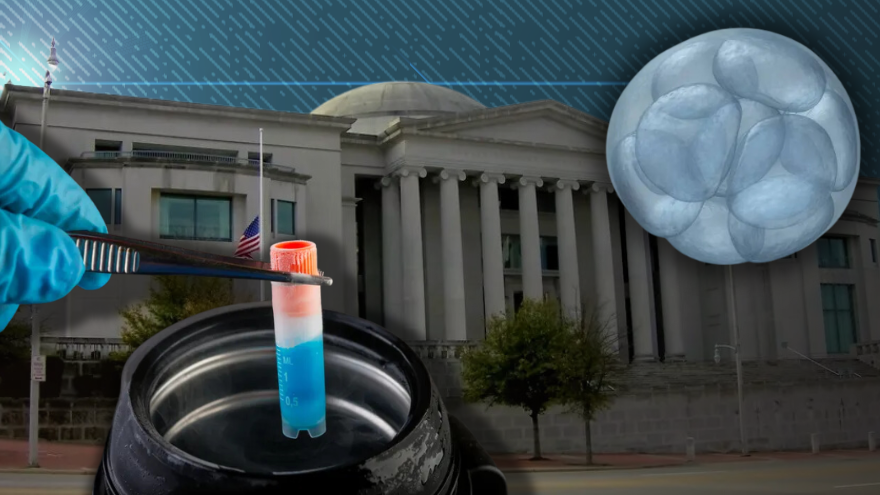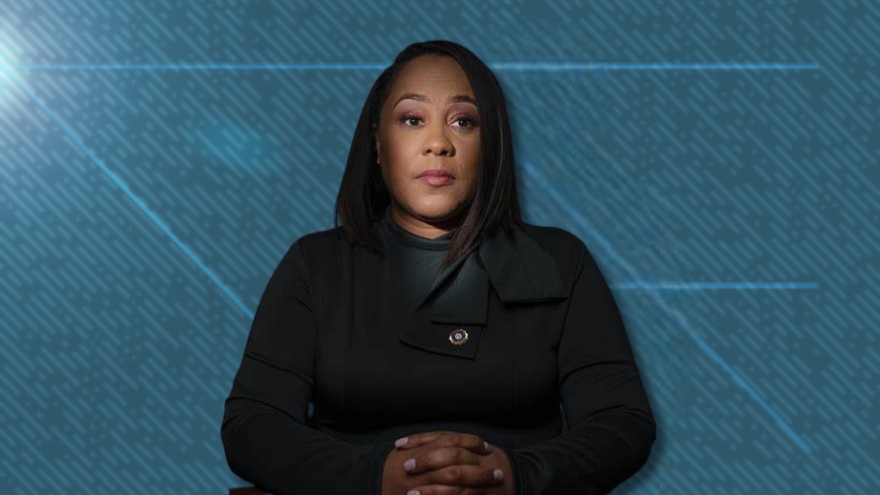The Supreme Court of Alabama ruled that embryos created and frozen during invitro fertilization are the legal equivalent of unborn children.
The Feb. 16 ruling has sparked concern that IVF could be prohibited in the state. In an 8-1 decision, the court affirmed that frozen embryos are included under the definition of the term “children” under the Wrongful Death of a Minor Act.
“The central question presented in these consolidated appeals, which involve the death of embryos kept in a cryogenic nursery, is whether the Act contains an unwritten exception to that rule for extrauterine children — that is, unborn children who are located outside of a biological uterus at the time they are killed,” wrote Justice Jay Mitchell in the opinion. “The parties to these cases have raised many difficult questions, including ones about the ethical status of extrauterine children, the application of the 14th Amendment to the United States Constitution to such children, and the public-policy implications of treating extrauterine children as human beings.”
The Wrongful Death of a Minor Act was passed in 1872 and permits parents to seek punitive damages from a person whose wrongful act, omission or negligence caused the death of their child within the six months after the minor’s demise.
The Court ultimately ruled that the “relevant statutory text is clear: the Wrongful Death of a Minor Act applies on its face to all unborn children, without limitation.”
The case began with a lawsuit filed by three couples whose frozen embryos were dropped by a hospital patient in Mobile. The patient gained access to the facility's cryogenic nursery through an unsecured doorway and removed several embryos. However, because of the sub-zero temperatures, the person was burned and dropped the embryos on the ground which destroyed them. The couples were seeking to file wrongful death suits on behalf of their children.
A lower court initially sided with the fertility clinic, the Center for Reproductive Medicine, and the Mobile Infirmary Medical Center – where the embryos were being stored. The two medical groups had counter-argued that the state’s Wrongful Death of a Minor Act does not apply to embryos that are outside a mother’s womb.
In 2022, Mobile County Circuit Court Judge Jill Parrish Phillips ruled that “based on Alabama’s statutes and case law ... a strong belief in the sanctity of life has not prevented the Alabama Supreme Court from recognizing and upholding our legislature’s clear pattern of using the term ‘in utero’ when defining the unborn or minor child, including in the context of a wrongful death case.”
“In light of this court’s role within Alabama’s constitutional construct, and giving appropriate deference to the separation of powers within the same, this court is not permitted to reject such clear, consistent and repeated expressions of legislative intent,” wrote Phillips, per AL.com.
The higher court disagreed with Phillips' ruling upon appeal. In its ruling, the Alabama Supreme Court wrote:All parties to these cases, like all members of this Court, agree that an unborn child is a genetically unique human being whose life begins at fertilization and ends at death. The parties further agree that an unborn child usually qualifies as a ‘human life,’ ‘human being,’ or ‘person,’ as those words are used in ordinary conversation and in the text of Alabama's wrongful-death statutes. That is true, as everyone acknowledges, throughout all stages of an unborn child's development, regardless of viability.
Unborn children are ‘children’ under the Act, without exception based on developmental stage, physical location, or any other ancillary characteristics.
The decision has not been universally embraced in Alabama.
According to BNN, “medical professionals and pro-choice groups have voiced their concerns, warning that this ruling could herald a seismic shift in the landscape of fertility treatments in Alabama” because recognizing that frozen embryos are children “could restrict access to fertility treatments, thus impacting countless individuals and couples yearning for parenthood.”

